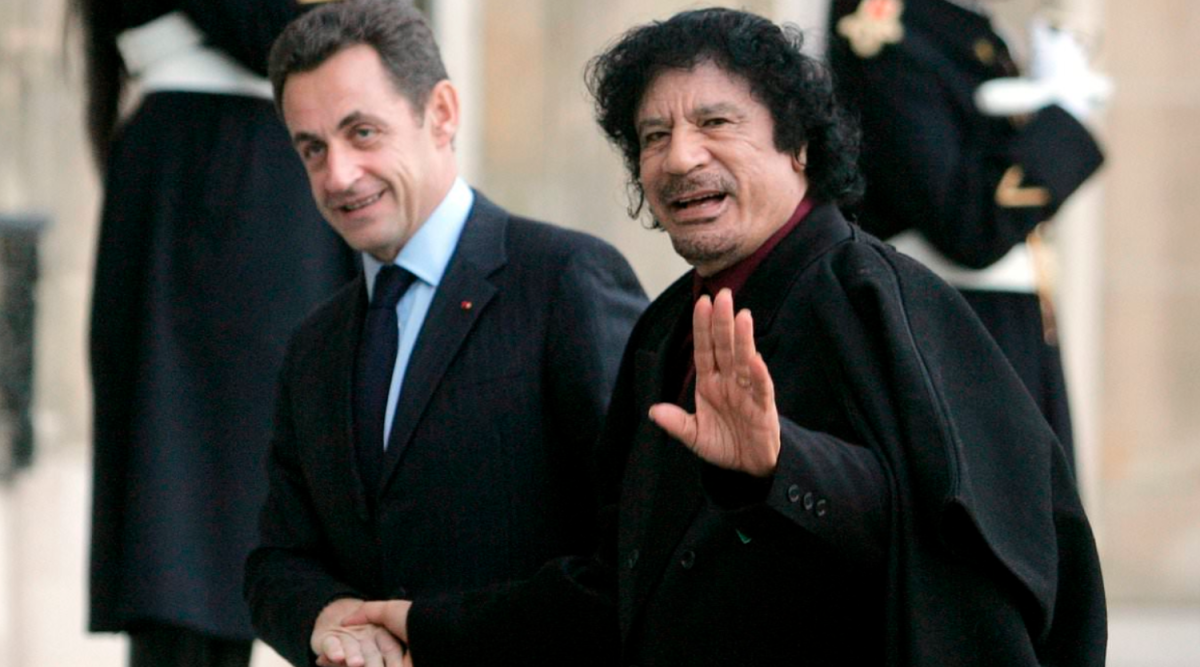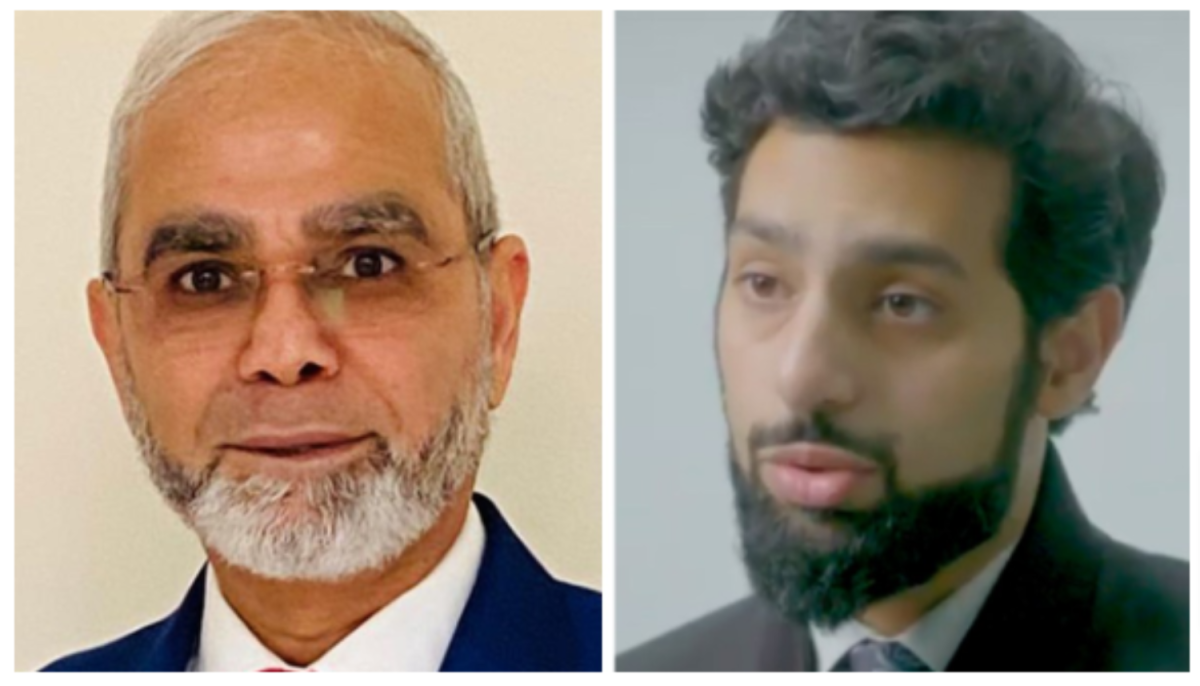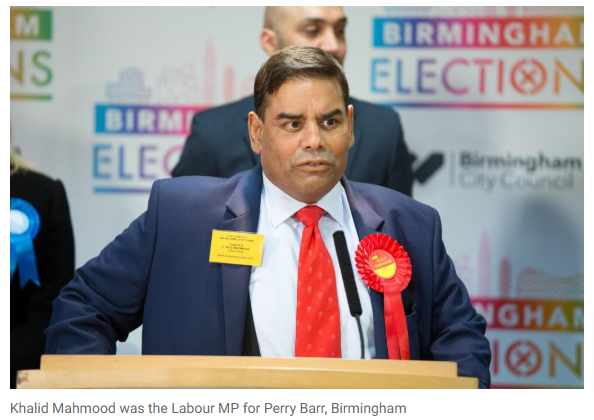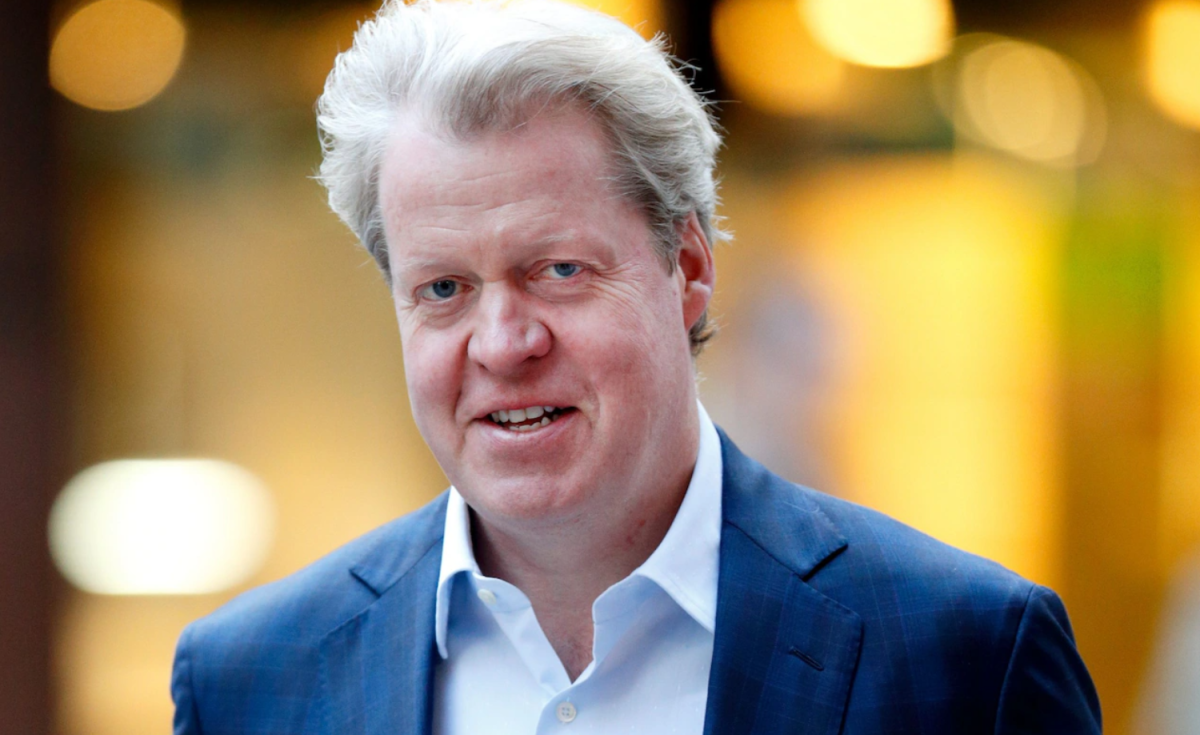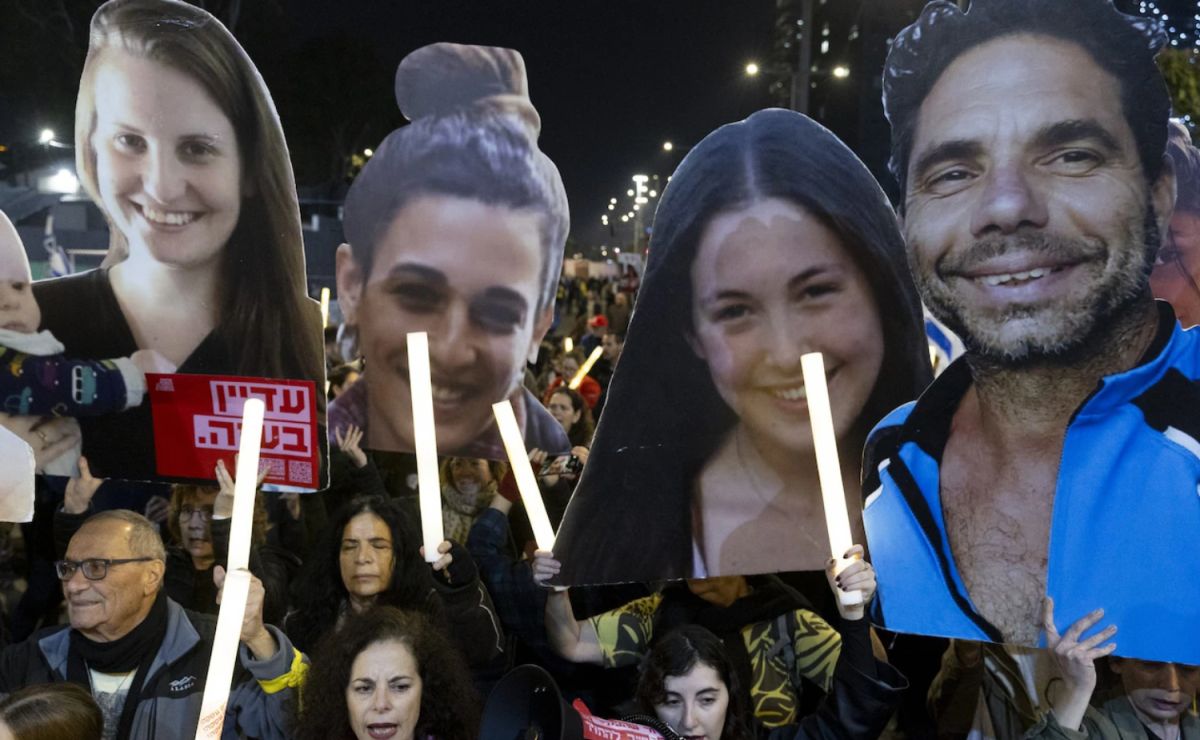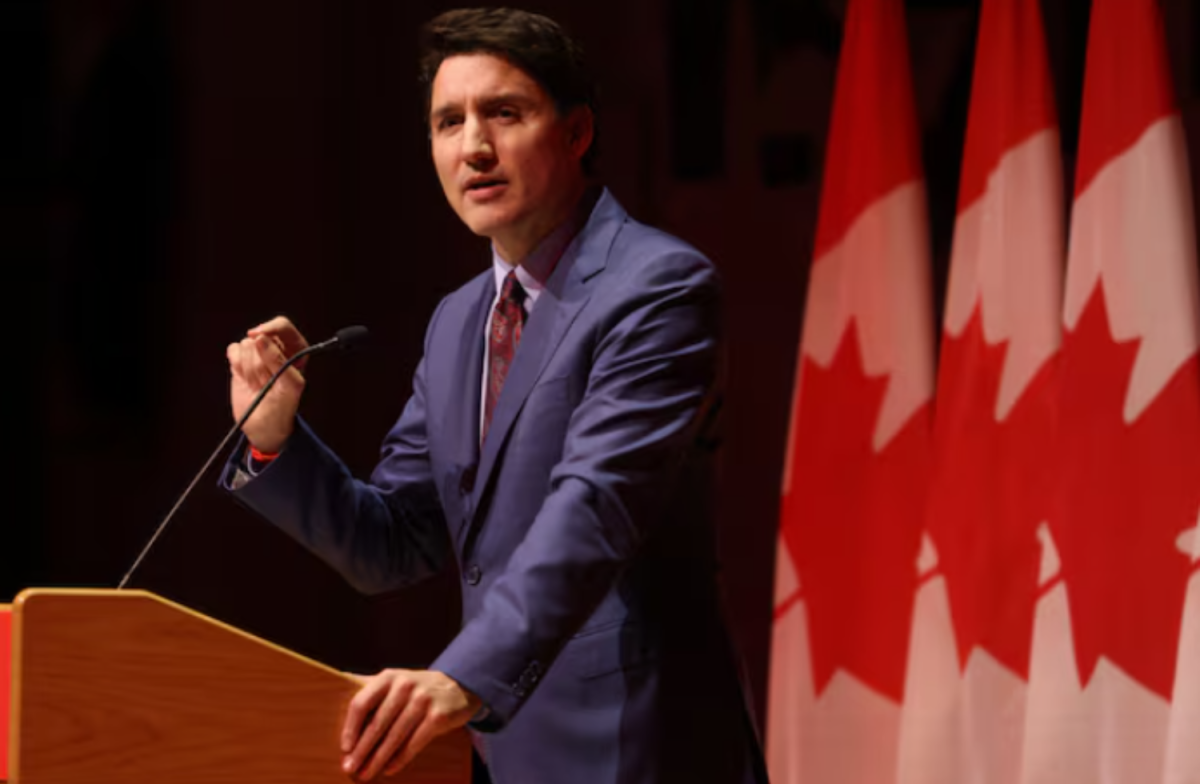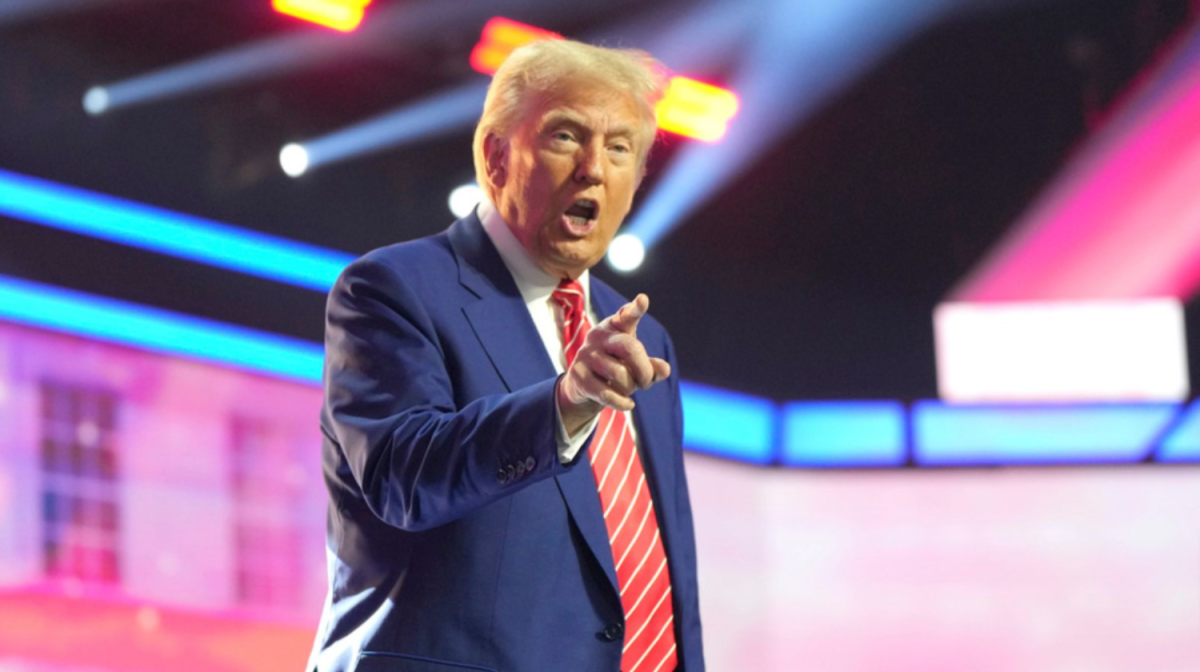-
Posts
10,807 -
Joined
-
Last visited
Content Type
Events
Forums
Downloads
Quizzes
Gallery
Blogs
Everything posted by Social Media
-
A harrowing scene unfolded at Westfield Stratford in east London on Sunday evening, where a group of knife-wielding men engaged in a violent brawl in front of horrified shoppers and onlooking security. Chilling footage captured the chaos as one man wielded a machete, chasing and attacking his opponent in the midst of a packed shopping center. The statement also revealed that four males, aged 16 and 17, were arrested on suspicion of affray. "Enquiries into the circumstances continue," the spokesperson added. Westfield declined to comment on the incident. This alarming altercation followed a similar violent episode just two days earlier in Hackney, a neighboring borough. A video posted online depicted two men clashing with machetes on Wick Road in Homerton. The street brawl spilled onto the road, forcing drivers to slow down and maneuver around the dangerous scene. Regarding the Hackney incident, a Metropolitan Police representative stated, "We are aware of this video circulating online and are making enquiries. There are no known reports or injuries." The escalating knife violence in London has cast a shadow over the city’s leadership. Mayor Sadiq Khan, in office since 2016 and recently re-elected in 2024, has faced significant criticism for his handling of knife crime. London, dubbed the "knife crime capital," has witnessed a 38% increase in knife-related offenses under his tenure. The Metropolitan Police has also been placed under special measures due to ongoing concerns about their ability to address crime effectively. Khan’s recent knighthood in the New Year Honours list has sparked outrage among victims' families and campaigners. Suzanne Hedges, whose son was tragically stabbed to death in 2016, called the recognition "insulting, degrading, and disrespectful" to those who have lost loved ones to knife crime. Courtney Barrett, founder of the Binning Knives Saves Lives group, echoed these sentiments, stating, "The knighthood is an insult, and I speak for 20 families of murder victims who I work closely with." As London grapples with rising violence, these incidents underscore the urgent need for effective measures to combat knife crime and restore a sense of safety to the city’s streets. Based on a report by Daily Mail 2024-01-08 Related Topic: Teen Gang Raid London Apple Store Amid Shopper Chaos
-

France Remembers the Charlie Hebdo Tragedy: A Decade Later
Social Media posted a topic in World News
Paris marked a solemn occasion on Tuesday, commemorating the victims of the horrific attack on the Charlie Hebdo satirical magazine that occurred 10 years ago. This attack, carried out by Islamist militants, not only left 12 people dead but also ignited a continuing debate over press freedoms in France. The events of January 7, 2015, unfolded when two masked gunmen, linked to al Qaeda, stormed the Charlie Hebdo offices. Armed with assault rifles, they sought retribution for the magazine’s publication of cartoons mocking the Prophet Mohammad, nearly a decade earlier. The attackers brutally killed 12 individuals, including eight editorial staff members and editor Stephane Charbonnier. In the wake of the massacre, France rallied behind the slogan "Je Suis Charlie" (I am Charlie), symbolizing a collective stand for freedom of expression. The attacks were a grim reminder of the tensions between secularism and religious sensitivities in the country. "There were scenes I will never forget," former French President Francois Hollande recalled, reflecting on the aftermath. "We had to act and we did so responsibly, aware that we weren't finished and that there would be other tragedies. And there were." His words highlighted the persistent threat and the resilience required to confront it. President Emmanuel Macron and Paris Mayor Anne Hidalgo led the day’s commemorations, which included a wreath-laying ceremony and a minute's silence at key locations in Paris. These acts of remembrance underscored the gravity of the events and the enduring impact on the national psyche. The assault on Charlie Hebdo was followed by more violence: over the next two days, another French-born militant killed a policewoman and four Jewish hostages in a kosher supermarket, further intensifying the nation’s grief and fear. In total, more than 250 lives have been lost to Islamist violence in France since the Charlie Hebdo attack, highlighting the ongoing struggle against extremism. This anniversary has reignited discussions around freedom of speech in France. Hollande voiced concerns about the growing trend of self-censorship out of fear, questioning whether journalists should refrain from publishing content that might offend certain groups. "There is a form of self-censorship that has taken root," he lamented. In response to the anniversary, Charlie Hebdo released a special edition, featuring a cover with a man sitting on the butt of a gun with the word "Indestructible!" boldly displayed. The editorial inside asserted, "Today the values of Charlie Hebdo — such as humor, satire, freedom of expression, ecology, secularism, feminism, to name a few — have never been so under threat." Charlie Hebdo’s fearless approach to journalism continues to polarize France. While many uphold it as a beacon of free expression, critics accuse the magazine of Islamophobia for its repeated depictions of the Prophet Mohammad, which Muslims consider blasphemous. Charlie Hebdo, however, defends its right to satirize all religions, not just Islam, as part of its broader commitment to challenging authority and dogma. As France remembers the victims of the Charlie Hebdo attacks, the nation grapples with the balance between protecting free speech and respecting religious beliefs—a complex issue that remains as pressing today as it was a decade ago. Based on a report by VOA 2024-01-08 -
Meta CEO Mark Zuckerberg announced a significant overhaul of the company’s content moderation strategy, signaling a departure from its long-standing fact-checking program. The initiative, which relied on partnerships with trusted organizations, will be replaced by a community-driven system similar to X’s Community Notes. The changes will affect Meta’s primary platforms—Facebook, Instagram, and Threads—and are intended to align with what Zuckerberg described as a cultural shift toward prioritizing free expression. The CEO explained that Meta’s decision to end its fact-checking program is driven by the limitations of current systems. “We built a lot of complex systems to moderate content, but the problem with complex systems is they make mistakes,” he stated. “Even if they accidentally censor just 1% of posts, that’s millions of people, and we’ve reached a point where it’s just too many mistakes and too much censorship.” While moving away from fact-checking, Meta will continue to address high-priority violations such as drug-related content, terrorism, and child exploitation. According to Zuckerberg, automated moderation will be refined to focus on these severe cases, while community members will play a larger role in identifying and reporting other issues. “The reality is that this is a trade-off,” he admitted. “It means we’re going to catch less bad stuff, but we’ll also reduce the number of innocent people’s posts and accounts that we accidentally take down.” Zuckerberg also announced plans to move Meta’s trust and safety and content moderation team from California to Texas. He explained that content filters would be adjusted to require higher confidence levels before removing posts. Additionally, Meta will scale back some content policies around contentious topics such as immigration and gender, aiming to simplify its moderation approach and rely more on user-generated input. These changes reflect Meta’s broader commitment to embracing free speech in response to a shifting political and cultural landscape. As Zuckerberg put it, “The recent elections feel like a cultural tipping point towards, once again, prioritizing speech.” While Meta’s new approach seeks to balance reducing errors with fostering a freer exchange of ideas, it remains to be seen how the transition will impact the company’s platforms and their billions of users worldwide. Based on a report by NBC 2024-01-08
-

US Aims for Israel-Hamas Ceasefire Agreement Within Two Weeks
Social Media replied to Social Media's topic in World News
@placnx I have now removed a number of your posts for off topic trolling. The next step will be an official warning -

US Aims for Israel-Hamas Ceasefire Agreement Within Two Weeks
Social Media replied to Social Media's topic in World News
A couple of way off topic posts that additionally are using the term zionist in a trolling manner have been removed. Please discuss the actual topic and not deflect or your post will be removed. Topic: US Aims for Israel-Hamas Ceasefire Agreement Within Two Weeks -
A Virginia hospital was thrust into crisis after unexplained injuries to newborns in its neonatal intensive care unit (NICU) led to a disturbing discovery. Henrico Doctors’ Hospital, located near Richmond, first noticed troubling patterns in the summer of 2023 when four babies suffered mysterious fractures. The alarming trend resurfaced in November, when three more infants in the NICU experienced similar injuries. The hospital, grappling with the safety of its youngest patients, took immediate action, including halting new NICU admissions and enhancing security measures. A breakthrough in the investigation came last week with the arrest of 26-year-old registered nurse Erin Elizabeth Ann Strotman. She has been charged with malicious wounding and felony child abuse. Henrico County Police, in a news release, revealed that Strotman’s arrest is connected to an incident in November. They also announced that all cases of mysteriously injured babies from 2023 and 2024 have been reopened. Authorities are meticulously reviewing hundreds of hours of surveillance footage to understand what happened to at least seven babies during this time. “We are committed to protecting our residents, particularly our youngest and most vulnerable,” the police stated. At Strotman’s arraignment on Friday, families of three injured children attended, but they did not comment publicly. Her attorney, Scott Cardani, did not immediately respond to requests for comment. In a statement, the hospital expressed both sorrow and resolve, emphasizing their commitment to patient care and safety. “We are both shocked and saddened by this development in the investigation and are focused on continuing to care for our patients and providing support to our colleagues who have been deeply and personally impacted by this investigation,” hospital leadership stated. Since the initial discovery of the injuries, the hospital has implemented several new safety protocols. These include additional training for NICU caregivers on recognizing and reporting abuse, comprehensive examinations for every NICU baby, and new security measures such as live-streaming technology that allows parents to monitor their infants in real time. Caregivers are now also subject to an observer system, ensuring they are never alone with a baby. “While fractures occasionally happen with pre-term babies since they lack full fetal bone development, we are actively working to determine how these fractures occurred,” the hospital noted. Henrico Doctors’ Hospital confirmed that it will not admit new babies into its NICU until the investigation is complete. The hospital thanked law enforcement and its staff for their dedication during this challenging time, stating, “We are grateful to those colleagues, who have dedicated their professional lives to the care and safety of our patients, as well as to law enforcement and the other agencies who have worked aggressively and tirelessly with us on this investigation.” Strotman’s next court date is scheduled for March 24, as the investigation continues to unfold. Families and authorities alike await answers about what led to the unthinkable injuries inflicted on these vulnerable newborns. Based on a report by WP 2024-01-07
- 1 reply
-
- 1
-

-
Nicolas Sarkozy, once celebrated as the face of French conservatism, now finds himself at the center of a corruption trial that has reignited global attention. Prosecutors claim the former president accepted tens of millions of pounds in laundered funds from Colonel Muammar Gaddafi, the late Libyan dictator, to finance his 2007 presidential campaign. These allegations, if proven, could forever taint Sarkozy’s rise to power and lead to a prison sentence of up to a decade. The trial, expected to last over three months, marks the most serious charges Sarkozy has faced, including corruption, illegal campaign financing, benefiting from embezzled public funds, and criminal conspiracy. The claims trace back to a series of dramatic accusations, such as suitcases filled with cash allegedly handed over by Franco-Lebanese businessman Ziad Takieddine. Takieddine has stated publicly that between 2006 and 2007, he personally delivered the equivalent of at least £42 million in cash to Sarkozy and his chief of staff, Claude Guéant, though Guéant has denied the allegations. A document signed by Libya's former intelligence chief, Moussa Koussa, reportedly corroborates the payments, and Gaddafi's son, Saif al-Islam, has claimed to have evidence of substantial sums being funneled to Sarkozy's campaign. With key witnesses alive and prepared to testify, the case has gained traction, placing Sarkozy under intense scrutiny. Sarkozy’s legal troubles extend beyond the Gaddafi allegations. He has previously faced accusations of accepting envelopes of cash from Liliane Bettencourt, the late L'Oréal heiress, though those charges did not result in conviction. In 2021, he was sentenced to three years for attempting to bribe a judge for classified information, with one year to be served under electronic surveillance and two suspended. Sarkozy is also appealing a separate one-year sentence for using false accounting to conceal overspending during his failed 2012 re-election bid. Adding to the drama is the involvement of Sarkozy’s wife, Carla Bruni. The former first lady, now 57, faces her own legal challenges, including charges of corruption and "witness tampering in an organized gang." Allegedly part of a £4 million operation to shield Sarkozy from prosecution, her trial is slated to begin later this year. This series of allegations is a far cry from Sarkozy's once-glamorous image as “President Bling-Bling,” a nickname reflecting his penchant for luxury. During his presidency, he borrowed yachts and jets from billionaire friends and hosted extravagant dinners. After marrying Carla, Sarkozy’s lifestyle became even more opulent, with reports of her spending £660 a day on fresh flowers for the Élysée Palace. Sarkozy’s association with Gaddafi further tarnished his reputation. In 2007, Sarkozy hosted the Libyan leader for a controversial state visit, allowing Gaddafi to pitch a Bedouin-style tent in the presidential gardens. Critics, including Sarkozy’s own Human Rights State Secretary, Rama Yade, condemned the visit as inappropriate, citing Gaddafi’s links to atrocities like the Lockerbie bombing and the shooting of a British police officer. Despite public outrage, Sarkozy shrugged off criticism, knowing his presidential immunity shielded him from investigation at the time. However, immunity dissolved after Sarkozy lost his 2012 re-election bid to François Hollande. Within days of leaving office, Sarkozy’s Paris home was raided by authorities, marking the beginning of his legal battles. The Libya case, with its dramatic allegations and high-profile witnesses, has now emerged as the defining chapter in Sarkozy’s troubled post-presidency. As the trial unfolds, the world watches to see whether the man once hailed as a political trailblazer will be remembered instead for corruption and scandal. Based on a report by Daily Mail 2024-01-07
-
Dr. Muhammad Adrees and Dr. Mohammed Wajid Akhter, contenders for the position of secretary-general at the Muslim Council of Britain (MCB), have sparked debate due to their past comments and praise of Iran. As these candidates prepare for their initial hustings on Tuesday, a report by Policy Exchange, a think tank, highlights their "deeply disturbing" views, as described by a former Muslim Member of Parliament. In 2022, Dr. Akhter described being Muslim as an "act of revolutionary defiance" and suggested that British Muslims should prioritize their religious identity over their national identity. He wrote, "Most people teach their children to be their nationality or ethnicity first, but this gives such a limited and limiting view of yourself and others that this can lead children to be shallow. It is literally how the evils of nationalism, racism, and fascism are born. Choosing faith as a primary identity for your children (and of course yourself!) allows a solid foundation upon which to approach the world." He emphasized that this should be the "primary" identity rather than the "only" one, urging parents to teach their children to be Muslims primarily. Further, Akhter criticized New Year's celebrations, stating they "usually involve un-Islamic practices" like "mixed gender events where people dance and sing songs." He remarked, "It is necessarily an Islam-free zone, not least because it has no basis or relationship to Islam." In 2023 speeches, Akhter called for Muslims to "organize" and "unite" into a "powerful community" that could transition from "the hand that is begging to the hand that is giving." Dr. Adrees, in a 2017 article for *Islam Today* following his trip to Tehran, lauded the Iranian regime and the late Supreme Leader Ruhollah Khomeini. He praised the Iranian Revolution as a movement that led the nation to its destiny, speaking favorably about the republic's respect for minorities, despite reports of executions for blasphemy during that period. Khalid Mahmood, a senior fellow at Policy Exchange and Britain's longest-serving Muslim MP from 2001 to 2024, criticized the MCB, saying, "The views exposed by Policy Exchange are deeply disturbing. That the MCB keeps getting it wrong is no accident. It is a design fault rooted in its ideology. The government rightly refuses to engage with the MCB." The MCB, which advises on governance and diversity without issuing religious rulings, was initially embraced by Labour in 2005 but later distanced by successive governments after a senior member supported Hamas in 2009. In response to the report, the MCB accused Policy Exchange of having "a long history of hostility towards British Muslims," a claim the think tank denied. The council assured that their affiliates would thoroughly scrutinize candidates during the hustings events and through the democratic process. Akhter defended his candidacy, saying, "I am standing for secretary-general of the Muslim Council of Britain because I love my community and my country. British Muslims have made, and will continue to make, a positive contribution to our society. My vision is to strengthen unity among all Britons, fostering mutual respect, shared values, and opportunities for everyone to thrive. Any attempt to misrepresent my views or intentions is not only deeply misleading but entirely unfounded." Based on a report by The Times 2024-01-07
-
In an unexpected visit to Florida, Italian Prime Minister Giorgia Meloni met with Donald Trump at his Mar-a-Lago resort, where she was warmly received by the president-elect and his supporters. This meeting, which took place just weeks before Trump’s inauguration on January 20, signifies a strategic move by Meloni to strengthen ties with the United States. Meloni’s office refrained from commenting on these reports. Her alignment with Trump is seen as a potential bolstering of her conservative stance and the stability of the right-wing coalition she leads in Italy. She has also cultivated a significant relationship with Elon Musk, a close Trump ally, who invested heavily in Trump's election campaign. Trump expressed his excitement about Meloni’s visit, telling attendees, "This is very exciting. I’m here with a fantastic woman, the prime minister of Italy. She’s really taken Europe by storm." The two leaders later attended a screening of a documentary that scrutinizes the legal challenges faced by John Eastman, Trump’s former lawyer involved in efforts to overturn the 2020 election results. A pressing issue for Meloni is the arrest of Cecilia Sala in Iran on December 19, just three days after Mohammad Abedini, an Iranian businessman, was detained in Milan under a U.S. warrant. Abedini is accused of supplying drone parts used in a 2023 attack that killed three U.S. service members in Jordan, an allegation Iran denies. The situation escalated as Iran’s foreign ministry summoned Italy’s ambassador over Abedini’s arrest. Meloni joins a select group of international leaders who have visited Trump in Florida since the November election, including Argentina's President Javier Milei, Hungary's Prime Minister Viktor Orban, and Canada’s Prime Minister Justin Trudeau. Based on a report by Daily Telegraph 2024-01-07
-
For decades, Israel has faced a grim reality: terror attacks perpetrated by extremists who seek to instill fear through violence. Yet, despite the gravity of these actions, such horrors often find a disturbing chorus of applause among certain groups in the West. College campuses and protest movements in cities like New York have echoed sentiments that effectively endorse these acts, creating an unsettling global ripple effect. This issue transcends borders. Just before Christmas, Germany witnessed a Saudi immigrant wreak havoc by driving through a bustling Christmas market, leaving five dead and nearly 200 injured. A similar tragedy unfolded in New Orleans during New Year’s celebrations when an ISIS-affiliated individual drove a truck into a crowd, killing 14 and injuring dozens. These events underscore a harsh truth: the threat of jihadist violence persists, undiminished. With regions like Afghanistan, Syria, and Yemen serving as breeding grounds for terrorism, the conditions that enabled the rise of groups like ISIS remain disturbingly intact. In the aftermath of 9/11, the United States vowed to dismantle safe havens for terrorists, reducing ungoverned spaces where extremists could train and launch attacks. While initial efforts saw progress, the resurgence of jihadist strongholds underscores the fragility of these gains. Today, vigilance from intelligence agencies and military forces is imperative, as is the need for decisive action against emerging threats. Domestically, the issue is equally pressing. The New Orleans attacker appears to have been radicalized within the United States, raising critical questions about online recruitment and extremist networks. It is vital that law enforcement agencies aggressively dismantle these networks while holding those who promote terrorism accountable. The work of intelligence professionals is commendable, yet societal complacency and misguided sensitivities hinder progress. Too often, cultural concerns are cited to deflect from addressing the real enablers of extremism. The Council on American-Islamic Relations (CAIR), a prominent Muslim advocacy organization, has faced criticism for its connections to past terrorism cases and controversial statements by its leaders. Nihad Awad, CAIR’s executive director, recently described the October 7 violence in Gaza as a justified breaking of a siege. Ignoring the brutal atrocities committed that day, Awad’s remarks were met with applause from his audience. Such rhetoric, coupled with society’s reluctance to confront it, highlights a dangerous tolerance for extremist ideologies. In New York, a pro-terror rally on New Year’s Day illustrated the alarming normalization of such views. Organized by groups like the Palestinian Youth Movement, the protest featured chants glorifying “intifada” and calls for Jews to “go back to Europe.” Imagine the outcry if similar sentiments were expressed by groups like the KKK. The disparity in public and institutional responses to these threats is a cause for concern. It is time for Americans to demand accountability from those who promote or excuse terrorism. Whether on college campuses or city streets, voices that glorify violence must be challenged. The safety and moral integrity of our society depend on it. Based on a report by NYP 2024-01-07
-
Earl Spencer school abuse investigation sees police speak to second alleged victimIn his memoir, the 60-year-old says that an unnamed female member of staff was a ‘voracious paedophile’. Detectives investigating claims that Earl Spencer was sexually abused by a member of staff at his boarding school have spoken to a second alleged victim, it has emerged. The brother of Diana Princess of Wales claimed he had been molested by a female member of staff at Maidwell Preparatory School in Northamptonshire in the 1970s. In his memoir, the 60-year-old claimed the unnamed female was a “voracious paedophile” who had groomed him and other boys at the school. In the book, Earl Spencer revealed how the alleged sexual abuse took place when he was moved into a new dormitory. He claimed the staff member – who boys would refer to as “Please” – would come into the room after lights out and hand out illicit snacks. But he said one night she kissed him on the lips before molesting him under the bedsheets. He said he was not the only pupil she did this to and would choose a different boy each term to have intercourse with. Earl Spencer also alleged in his book that the former headmaster would spank boys on their bare bottoms, while another teacher took boys for naked swimming lessons. He wrote that he had been so traumatised by his experiences that he had regularly considered shooting himself with one of his father’s shotguns. Northamptonshire Police launched an investigation into the abuse allegations and a woman from the Midlands was arrested and questioned in June 2024. At the weekend the force confirmed officers had now spoken to a second former pupil about the claims. A police spokesman said: “Officers are investigating reports made by two people in relation to alleged offences.” Based on a report by Daily Telegraph 2024-01-07
-
As the UK implements a ban on XL bullies, a new breed is rising to prominence among those seeking powerful, intimidating dogs: the cane corso. This Italian mastiff, weighing up to 50kg (110 lbs), has been described as “like an XL bully on steroids” and is rapidly gaining popularity due to its formidable presence and legal status in the country. The cane corso, a descendant of the Molossian war dogs of ancient Rome, has traditionally served as a guard dog. Unlike the restricted XL bullies, which require exemption certificates and must be muzzled in public, the cane corso faces no such limitations, making it an attractive option for those desiring a status dog without the legal constraints. However, its growing popularity raises concerns among experts. Rob Alleyne, a canine behavior specialist who runs the Canine Instructor Academy in Suffolk, has noticed a significant increase in cane corso sightings. “The XL bully ban is driving people towards other large breeds that can be just as dangerous if not trained properly,” Alleyne explained. He warned, “The cane corso is like an XL bully on steroids. It’s a killing machine, and they’ve become much more popular now. [The ban] has just pushed people towards an even worse dog that doesn’t need to be registered, and God help us if they become too popular.” Alleyne compared the current trend to the pitbull terrier ban, which led to the rise of the XL bully, noting a similar pattern with the cane corso. "When they banned the pitbull terrier, what did we get? We got a dog far more dangerous than the pitbull terrier. Then if we ban the cane corso, people will just go out and get something else." Despite not being recognized by the Kennel Club and often excluded from pet insurance coverage, the demand for cane corso puppies is soaring. Prices on the Pets4Homes website range from £600 to £1,600, with more than 200 posts advertising litters. Fully grown cane corsos can even be found for as little as £75. Recent incidents have further highlighted the potential dangers of the breed. Jack Fincham, a reality TV star, faced charges after his cane corso, Elvis, bit a man. In another tragic case, Gary Stevens from Derby was jailed for four and a half years after his cane corso, Ace, killed his brother. Police were forced to shoot Ace after tasering proved ineffective. The rise in cane corso ownership has not gone unnoticed by professional dog walkers. Faith Throssell observed, “I’ve literally not seen [an XL bully] for months, certainly not since the summer. People have got more interested in other big dogs. I’ve seen a few more cane corsos.” Another dog walker in Croydon mentioned a pensioner client who recently acquired a cane corso-rottweiler cross, highlighting the shift in public preference following the XL bully ban. Experts like Alleyne emphasize that the real issue lies in the training and socialization of these powerful breeds. “One of the failings of the current dangerous dogs legislation is that it identifies specific breeds as ‘dangerous’, implying that all other breeds are inherently ‘safe’,” he said. “The fact is that the behavior of a dog is shaped by the way that it is bred, raised, socialized, and trained.” As the cane corso gains traction as the new status symbol, the debate continues over how best to manage the ownership of large, potentially dangerous dogs. Based on a report by The Times 2024-01-07
-
Keir Starmer, the leader of the Labour Party, has firmly condemned the spread of "lies and misinformation" regarding child sexual exploitation. His comments come in response to Elon Musk's recent remarks on the social media platform X, where Musk accused Starmer of failing to prosecute grooming gangs during his tenure as director of public prosecutions and called Labour MP Jess Phillips a "rape genocide apologist." Musk also suggested Phillips should be jailed. The controversy centers on the government's decision not to initiate a public inquiry into child sexual exploitation in Oldham, a decision defended by Phillips. In response to criticism, Starmer emphasized his commitment to addressing child sexual abuse, stating: "Child sexual exploitation is utterly sickening. For many years, too many victims have been completely let down." Starmer defended his record, asserting that he had tackled the issue "head on" during his time as director of public prosecutions. "I changed the system because I could see some of the things that were going wrong," he explained. Reflecting on the gravity of the issue, he acknowledged, "The victims here suffered terrible abuse, and then they weren't listened to." Speaking on the broader discourse around the topic, Starmer took aim at those perpetuating falsehoods. "Those who are spreading lies and misinformation as far and as wide as possible are not interested in victims; they're interested in themselves," he said, highlighting the harm such narratives cause to survivors seeking justice. Phillips, who has been a vocal advocate for addressing sexual abuse, received Starmer's staunch support amidst the attacks. He stated that Phillips has done "1,000 times more than they've even dreamt about when it comes to protecting victims of sexual abuse." The discussion also touched on existing reviews and inquiries into grooming gangs. Starmer pointed out that there have already been numerous localized investigations and called for the implementation of actionable recommendations. "Now is the time for action on inquiry recommendations," he urged. Prime Minister Rishi Sunak echoed this sentiment, agreeing that "no stone should be left unturned" in addressing the failures of the past. However, he questioned the effectiveness of previous governments in enacting meaningful change. Referring to the Jay Report, an independent inquiry into child sexual exploitation in Rotherham, Sunak asked: "Why didn’t the last government implement the Jay requirements?" The tension between calls for further inquiries and the urgency for action highlights the ongoing complexities in addressing systemic failures surrounding child sexual exploitation. Both Starmer and Sunak stressed the importance of tangible measures to support victims and ensure accountability. As the discourse unfolds, the focus remains on safeguarding victims and preventing future abuse while countering the spread of harmful misinformation that distracts from these critical objectives. Based on a report by BBC 2024-01-07 Related Topics: UK Ex-MP Claims Grooming Gang Ethnicity Was Suppressed to Protect Votes Elon Musk Advocates for Tommy Robinson’s Release Amid Criticism of UK Leadership Kemi Badenoch Urges National Inquiry into UK Grooming Scandal
-
The United States is pushing for a ceasefire agreement between Israel and Hamas to be finalized before the end of Joe Biden's presidency, Secretary of State Antony Blinken revealed during a press conference. The announcement comes ahead of Donald Trump's inauguration on January 20, adding urgency to ongoing diplomatic efforts. “We very much want to bring this over the finish line in the next two weeks, the time we have remaining,” Blinken told reporters when asked about the progress toward a deal. Hamas recently claimed to have provided Israel with a list of 34 hostages that could be released in the first phase of a ceasefire agreement. The list reportedly includes children, women, and the elderly. However, questions remain about the status of the hostages. A source involved in the negotiations told *The Telegraph*, “Israel of course demands that the hostages released are alive and not corpses. So until there’s a clarification on the list, there’s still work to be done to agree on the ceasefire.” The source further disclosed that Israel had already identified Palestinian prisoners who might be released in exchange. However, the office of Israeli Prime Minister Benjamin Netanyahu stated that the list of hostages provided by Hamas appeared to match the names shared with mediators by Israel in July 2022, suggesting no new information had been presented. While Israel has signaled its willingness to respect a ceasefire deal, officials have emphasized that any pause in hostilities will not signal an end to their campaign against Hamas. “It will be a ceasefire, where the international system along with Israel will hopefully manage to solve the issue of Hamas having any influence in Gaza,” the source added. As efforts to reach an agreement intensify, David Barnea, Israel’s intelligence chief, is reportedly set to travel to Qatar for further discussions. Meanwhile, Blinken’s remarks underscore the Biden administration’s determination to broker a deal that could alleviate tensions and potentially lead to a broader resolution of the conflict. Based on a report by Daily Telegraph 2024-01-07
-
A mob of hooded youths carried out a brazen robbery at the Apple store in Brent Cross shopping centre, North London, on Sunday afternoon. The incident unfolded in broad daylight, leaving shoppers, including families with young children, in a state of panic. The chaos began as the store’s security guard attempted to block one of the youths from entering. While his attention was diverted, the rest of the group rushed through the entrance, shoving aside customers in their path. Some shoppers, including a father who was seen carrying his child, fled in fear as the thieves descended on displays of Apple’s latest products. Employees and security personnel tried to intervene, with one guard in a high-visibility vest attempting to trip the robbers as they made their escape. In the rush, at least one stolen phone was dropped on the floor of the shopping centre. Social media users were quick to condemn the thieves, with many labeling their actions as “savage.” The incident has reignited concerns about the rising tide of retail crime across the UK. The Met Police reported that more than £15 million in goods and cash were stolen in the past year, highlighting the significant financial burden this crime wave places on businesses. The Apple store, one of approximately 120 shops in Brent Cross shopping centre, attracts thousands of visitors daily. Opened in 1976, the centre has long been a bustling retail hub, drawing around 15 million visitors annually. This robbery adds to growing pressure on police forces and the government to address the country’s escalating shoplifting epidemic. As investigations continue, the swift arrests in this case demonstrate law enforcement’s commitment to tackling such crimes head-on. Based on a report by Daily Mail 2024-01-07
-

Biden Approves $8 Billion Arms Sale to Israel
Social Media replied to Social Media's topic in World News
Off topic troll post & bickering removed. Please read it again if you're losing focus, it is not about the bible in a speech from 2023 by Netanyahu -
Canadian Prime Minister Justin Trudeau is increasingly likely to announce his resignation as leader of the Liberal Party, though a final decision has yet to be made, according to a source familiar with his thinking. Speaking to Reuters on condition of anonymity, the source revealed that Trudeau may declare his intentions as early as Monday, following a report by the *Globe and Mail*. The potential announcement would mark the end of Trudeau's nine-year tenure as leader of Canada’s ruling party. The source’s comments come at a critical moment for the Liberals, who face growing internal pressures amid bleak polling data. Public dissatisfaction has fueled speculation about Trudeau’s future, with some Liberal legislators calling for a leadership change. If Trudeau steps down, the party would face a leadership vacuum at a time when polls suggest it is on track to lose decisively to the opposition Conservatives in the next federal election, which must take place by late October. The *Globe and Mail* reported that Trudeau’s decision could come before an emergency meeting of Liberal parliamentarians scheduled for Wednesday. However, the timing and specifics of his potential resignation remain uncertain. Trudeau’s office has yet to comment on the matter, and his official schedule for Monday lists participation in a virtual cabinet meeting on Canada-U.S. relations. As speculation grows, questions linger about whether Trudeau would step down immediately or remain as prime minister until a new leader is chosen. The *Globe and Mail* suggested that interim leadership discussions have taken place. One source indicated that Finance Minister Dominic LeBlanc has been approached as a possible interim leader, though this could be complicated if LeBlanc decides to run for permanent leadership. Trudeau assumed leadership of the Liberals in 2013, at a time when the party was struggling after being reduced to third place in the House of Commons. His leadership brought a resurgence, culminating in a decisive victory in the 2015 federal election. However, a series of challenges in recent years, including ethical controversies, economic pressures, and public dissatisfaction with his administration, have eroded his party’s support. If Trudeau resigns, it could spark calls for a swift election to establish a stable government. This would be crucial for navigating key political challenges, particularly in managing relations with the United States under President-elect Donald Trump. With increasing numbers of Liberal MPs expressing concern over the party’s prospects, Trudeau’s departure could mark the start of a critical transition for the Liberals. Whether this move will reinvigorate the party or exacerbate its challenges remains uncertain as Canadians await an official announcement. Based on a report by Reuters 2024-01-06
-
In 1831, an immense volcanic eruption altered Earth’s climate, causing temperatures in the Northern Hemisphere to drop by an average of 1 degree Celsius. Nearly 200 years later, scientists have finally pinpointed the source of this mysterious eruption: Zavaritskii volcano on Simushir Island, part of the Kuril Islands archipelago in the northwest Pacific Ocean. This event, one of the most powerful eruptions of the 19th century, released vast quantities of sulfur dioxide into the stratosphere. It coincided with the final stages of the Little Ice Age, a period of notable cooling that lasted from the early 1400s to around 1850. Despite the eruption's climatic impact, the volcano responsible remained unidentified for decades due to limited historical records and its remote location. Dr. William Hutchison, a principal research fellow at the University of St. Andrews, explained the challenges of uncovering Zavaritskii’s eruptive history. "For many of Earth’s volcanoes, particularly those in remote areas, we have a very poor understanding of their eruptive history,” he said. “Zavaritskii is located on an extremely remote island between Japan and Russia. No one lives there, and historical records are limited to a handful of diaries from ships that passed these islands every few years.” The breakthrough came through an innovative analysis of ice cores from Greenland. Layers of sulfur isotopes, volcanic ash, and glass shards deposited between 1831 and 1834 pointed to a midlatitude volcano in the Northern Hemisphere. Geochemical analysis and computer modeling ultimately led researchers to Zavaritskii, a volcano whose last known eruption had been in 800 BC. “The moment in the lab analyzing the two ashes together — one from the volcano and one from the ice core — was a genuine eureka moment,” Hutchison shared. While earlier studies misattributed the 1831 eruption to tropical volcanoes like Babuyan Claro in the Philippines, new findings highlight the Kuril Islands as a source of significant climatic disruptions. Dr. Stefan Brönnimann, a climatologist at the University of Bern, emphasized the importance of this discovery. “This eruption had global climatic impacts but was wrongly attributed to a tropical volcano for a long time period. The research now shows that the eruption took place on the Kurils, not in the tropics.” The impact of the eruption extended far beyond the Northern Hemisphere's cooler temperatures. The resulting environmental changes contributed to widespread famine and hardship across India, Japan, and Europe. “It seems plausible that volcanic climate cooling led to crop failure and famine,” Hutchison said. “A focus of ongoing research is to understand to what extent these famines were caused by volcanic climate cooling or by other socio-political factors.” The identification of Zavaritskii adds to a broader understanding of the role of volcanic activity in shaping Earth’s climate. Alongside other eruptions, such as Tambora in Indonesia in 1815 and Cosegüina in Nicaragua in 1835, it underscores the significant impact of volcanic eruptions during the Little Ice Age. Hutchison stressed the importance of monitoring isolated volcanoes like Zavaritskii, as future eruptions could have devastating global consequences. “We don’t really have a coordinated international community to kick into gear when the next big one happens,” he warned. “That is something we need to think about as both scientists and as a society.” By shedding light on the mysterious 1831 eruption, this research highlights the delicate interplay between natural events and human history and the need for vigilance in the face of Earth’s unpredictable geological forces. Based on a report by CNN 2024-01-06
-
The Biden administration has formally notified Congress of a proposed $8 billion arms sale to Israel, encompassing munitions for fighter jets and attack helicopters, as well as artillery shells, according to sources with direct knowledge of the deal. This marks a significant and possibly final arms transfer to Israel under the current administration. The decision arrives amidst ongoing claims from Israeli Prime Minister Benjamin Netanyahu and his supporters that the Biden administration had imposed a silent “arms embargo” on Israel. Despite calls from some Democrats to condition arms sales on Israel’s approach to the war effort and humanitarian concerns in Gaza, President Biden chose not to tie such conditions to the deal. This agreement is structured as a long-term arrangement, with a mix of immediate fulfillment from U.S. stocks and deliveries that could take several years to complete. According to sources, the package includes a range of advanced weaponry: AIM-120C-8 AMRAAM air-to-air missiles for intercepting airborne threats, including drones; 155mm artillery shells; Hellfire AGM-114 missiles for attack helicopters; small diameter bombs; and JDAM tail kits that convert conventional bombs into precision-guided munitions. Additionally, the deal comprises 500-pound warheads and bomb fuzes, demonstrating a focus on both air superiority and ground-based offensive capabilities. A U.S. official stated that the sale is designed to bolster Israel’s long-term security by replenishing critical munitions and enhancing air defense systems. "The President has made clear Israel has a right to defend its citizens, consistent with international law and international humanitarian law, and to deter aggression from Iran and its proxy organizations,” the official said. “We will continue to provide the capabilities necessary for Israel's defense." Approval of the sale now lies with the House and Senate foreign relations committees, which will review the proposal. Given its scope and timing, the agreement underscores the Biden administration’s commitment to Israel’s security amidst regional instability, even as it navigates domestic and international scrutiny over the broader implications of arms transfers in the context of ongoing conflicts. While the deal is poised to address Israel’s strategic needs, its political and humanitarian ramifications remain subjects of debate, reflecting the delicate balance between defense partnerships and accountability in international relations. Based on a report by AXIOS 2024-01-06
-
Donald Trump has voiced strong criticism of the United Kingdom's energy policies, particularly its reliance on wind energy and the recent hike in windfall taxes on fossil fuel profits. Trump called these moves a "very big mistake" and urged the UK to "get rid of windmills" while opening up the North Sea for more oil and gas production. In a post on his social media platform, Truth Social, Trump shared a news article from November detailing the withdrawal of a major U.S. oil producer, Apache, from the North Sea. The region, situated off the Scottish coast, is a significant hub for oil production. Trump wrote, "The UK is making a very big mistake. Open up the North Sea. Get rid of windmills!" Apache announced it would cease operations in the North Sea by 2029, attributing its decision partly to the increased windfall tax imposed on fossil fuel companies. The energy profits levy, introduced as a response to surging energy prices following Russia's invasion of Ukraine, was raised to 38% in October by UK Chancellor Rachel Reeves. This marked an increase from the original 25% introduced by Rishi Sunak in 2022. John Christmann, chief executive of Apache’s parent company, APA Corporation, explained that the investment required to meet UK regulations, combined with the "onerous financial impact" of the windfall tax, made hydrocarbon production beyond 2029 economically unviable. He also noted that substantial investments would be necessary to comply with regulatory requirements, further discouraging long-term commitments in the region. Trump's remarks reflect his broader stance on energy production. During his first presidential campaign, he popularized the phrase "drill, baby, drill," signaling his commitment to expanding oil and gas production. He has indicated that increasing domestic energy output will remain a key focus if he secures a second term in office. The windfall tax, formally known as the energy price levy, was introduced to address record profits reported by many oil and gas companies amid soaring energy prices. The additional revenue was intended to help alleviate the financial burden on households facing skyrocketing gas and electricity bills during a widespread cost-of-living crisis. Despite its intended benefits, the policy has faced criticism from industry stakeholders, with Apache being one of several firms reevaluating or scaling back operations in the North Sea. Critics argue that the tax discourages investment in the region, potentially undermining the UK’s energy security and economic stability. As global energy challenges continue, the debate over the balance between promoting renewable energy and maintaining fossil fuel production remains contentious. Trump's call to prioritize oil and gas over wind energy adds a high-profile voice to the conversation, further fueling the discourse on the future of energy policy in the UK and beyond. Based on a report by Sky News 2024-01-06
-
As Americans celebrated the arrival of a new year on New Year's Day, the dark reality of radicalized violence shattered the festive atmosphere in New Orleans. Around 3:15 a.m. local time on Bourbon Street, a bustling hub of New Year's revelry, tragedy struck. Shamsud-Din Jabbar, a U.S. Army veteran who had converted to Islam and reportedly embraced extremist ideologies, drove a rented pickup truck into a dense crowd of partiers. The vehicle was more than just a weapon of impact; it was packed with firearms, improvised explosive devices, and an ISIS flag. This horrific act of violence left at least 15 dead and more than 30 injured, turning a night of joy into one of devastation. Jabbar’s journey toward radicalization remains under investigation, but some details are emerging. He had been associated with Masjid Bilal, a mosque in Houston. In the wake of this horrific event, the mosque advised its members via social media to avoid speaking directly with the FBI, instead directing inquiries to the Council on American-Islamic Relations (CAIR). CAIR, a controversial organization, has faced criticism and scrutiny over the years. It was listed by the FBI as an unindicted co-conspirator in the 2007 case against the Holy Land Foundation, the largest terror financing prosecution in U.S. history. Former FBI counterterrorism officials have also described the group as a “front organization for Hamas,” a designation that continues to stir heated debate. A few hours later several hundred demonstrators called for an intifada at an anti-Israel protest in New York City’s Times Square to mark New Year’s Day. Attendees chanted “Resistance is glorious — we will be victorious,” “We will honor all our martyrs,” and “Gaza, you make us proud.” They carried signs that said “Zionism is cancer,” “No war on Iran,” and “End all US aid to Israel.” “There is only one solution — Intifada revolution,” they chanted, using a common refrain at anti-Israel rallies in the US. “Intifada,” Arabic for “uprising,” is associated with the Second Intifada, a period of terror attacks in Israel in the early 2000s marked by suicide bombings. For decades, political leaders and commentators have oscillated between vigilance and complacency regarding the threat posed by radical Islamic extremism. The assassinations of figures like Osama bin Laden and the dismantling of ISIS’s territorial control fostered a dangerous sense of security among some policymakers. Groups like Hamas and Hezbollah, often dismissed as regional concerns primarily affecting Israel, were deprioritized in the broader U.S. national security strategy. However, history provides ample warnings about the risks of underestimating jihadist networks. The 1983 Hezbollah bombing of the U.S. Marine barracks in Beirut, which claimed the lives of 241 American servicemen, remains a poignant reminder of their capacity for destruction. In contrast to this historical vigilance, recent political and cultural priorities have shifted focus domestically, with some officials concentrating on issues like abortion clinic protests and school board controversies. Meanwhile, fundamental security recommendations, such as those outlined in the 9/11 Commission’s final report urging a secure U.S.-Mexico border, appear to have been sidelined. The New Orleans attack is a grim testament to the persistent and evolving threat of radical Islamic jihad. It underscores the urgent need for robust national security measures, including tightened border controls and renewed international cooperation to combat extremism. The United States must remember the lessons of the past and confront the realities of the present. As the nation mourns the victims of this senseless act, it is imperative to recognize that complacency is not an option. If America is to prevent future tragedies, it must commit to a vigilant and proactive stance against the multifaceted threats posed by radical ideologies. Based on a report by NewsWeek | TOI 2024-01-06
-
Europe stands on the brink of an economic apocalypse, with its longstanding prosperity under siege from stagnation, dwindling competitiveness, and the potential return of Donald Trump to the White House. As Mario Draghi starkly warned in a recent report, this is “an existential challenge” for the continent. Historically, Europe thrived on innovation and a robust economic model underpinned by its eastern expansion and strong trade relationships with the U.S. and Asia. Yet, the once-firm foundations of this prosperity now show alarming cracks. With China’s economic boom losing steam and U.S.-Europe trade relations clouded by rising tensions, Europe’s economic trajectory appears increasingly precarious. The challenges could escalate dramatically under a second Trump presidency. His administration has already hinted at imposing punitive tariffs on European goods, from Bordeaux wine to luxury Italian suits. Trump’s persistent demand for NATO allies to contribute more financially to their own defense adds another strain. European governments, already grappling with soaring deficits and declining tax revenues, face the prospect of deeper financial and political turmoil. Europe’s woes, however, go beyond external pressures. At its core, the continent faces a troubling truth: it has become an “innovation desert.” Despite a storied history of transformative inventions—from the automobile to modern pharmaceuticals—Europe has ceded ground in global innovation. Christine Lagarde, speaking at Paris’s historic Collège des Bernardins, cautioned that Europe’s cherished social model is at risk unless the region swiftly adapts. “Otherwise, we will not be able to generate the wealth we will need to meet our rising spending needs to ensure our security, combat climate change and protect the environment,” she said. The statistics paint a grim picture. Europe’s global tech presence is paltry, with only four of the world’s top 50 tech firms hailing from the continent. In the automotive sector, despite accounting for over 40% of global R&D spending, European carmakers missed the electric vehicle revolution. Germany’s auto giants, for instance, focused on optimizing diesel engines while companies like Tesla and Chinese manufacturers dominated the electric vehicle market. This failure has led to significant repercussions, including Volkswagen’s decision to shutter some German plants for the first time in its history. Compounding the issue is Europe’s chronic underinvestment in emerging technologies. IMF data reveals that U.S. tech companies spend over twice as much on R&D as their European counterparts, resulting in a 40% productivity surge in the U.S. tech sector since 2005, compared to stagnation in Europe. Lagarde succinctly captured the problem: “Europe is falling behind in emerging technologies that will drive future growth.” This economic malaise extends beyond tech and cars. European industries face mounting competition from China in areas like machinery and trains, sectors where the region once held dominance. Meanwhile, social spending in many EU nations is unsustainable under current economic conditions. France, for example, spends over 30% of GDP on social programs but is grappling with a budget deficit expected to surpass 7% by 2025. As borrowing costs rise and economic growth stagnates, the stark reality is that Europe may face difficult decisions reminiscent of Greece’s austerity measures in 2010. Clemens Fuest of the Ifo Institute reflected on Europe’s lack of preparation for these challenges: “The failure of Europe’s leaders to draw lessons from the last Trump presidency is now coming back to haunt us.” If Europe’s leaders fail to act decisively, the continent risks becoming a “debt-ridden, open-air museum,” as Draghi described. The trouble is, by the time Europeans wake up to their new reality, it may be too late to do much about it. Based on a report by Politico 2024-01-06








